- Home
- Darrell Maloney
The Quest: Countdown to Armageddon: Book 6 Page 7
The Quest: Countdown to Armageddon: Book 6 Read online
Page 7
And playing the hero role, taking her hand and swearing, with God as his witness, that he’d find those responsible and bring them to justice to pay for the dastardly deed.
But his finger had twitched just a bit. Imperceptibly. But it was enough to ruin his first shot.
And he misjudged how fast John would drop to the ground. That’s what caused his second shot to be off as well.
So instead of a shot into the center of John’s head and another through his heart, he’d fired a shot which broke John’s skull but didn’t penetrate it.
And another that had just barely missed his heart.
Yes, they’d done their damage.
Both shots had wreaked havoc upon John’s body, leaving him in grave condition. But he wasn’t supposed to have survived.
That was merely Robbie’s first mistake. There were many more to follow.
He’d waited too long to join the other officers at the scene of the shooting. He wanted it to appear that he was miles away when the shots rang out.
But because he took too long to get to the scene, and had to make it appear he was interested before breaking away to go and notify Hannah, Chief Martinez beat him to the punch.
“I’ll go do the notification,” Martinez told the assembled officers. “You men stay here and find the son of a bitch who did this.”
And somewhere in the melee, Robbie noticed that he’d lost one of the shell casings.
That wasn’t a major problem, in and of itself. By leaving to notify John’s family, the chief had unwittingly done Robbie a favor. He freed Robbie up to search for the sniper’s nest, and look for evidence.
Of course, it took Robbie no time at all to find the would-be assassin’s nest. He, after all, knew exactly where it was.
But the piece of brass he was looking for wasn’t there.
It was nowhere to be found.
That bothered Robbie, but not greatly. Several other officers had joined him on that hilltop looking for evidence, and none of them had found the casing either.
And even if they had, there was no longer a crime lab to match it up to Robbie’s rifle. And he’d been careful to wear latex gloves when he loaded the magazine. So there were no fingerprints to be had, even if the lab did exist.
By far the greatest mistake Robbie made that day, and the one most likely to cause him problems, was that he didn’t notice Luther Brown walking down the street toward John Castro when he fired his bullets into John’s body.
He’d left behind a witness.
-17-
Robbie had a pretty good idea who his witness was, even though he’d never seen him.
In his hurry to leave the scene of his crime, Robbie had neglected to scan the area in case anyone had wandered into the scene.
And if he had, he likely wouldn’t have seen Luther anyway. For Luther had gone to ground at the sound of the first shot, shielded from Robbie’s view by several trees, buildings and abandoned cars.
Robbie, in fact, had been just as surprised as everyone else to hear Luther’s plaintive cries for help come over the police radio.
And even though he’d never seen Luther either before or after the shooting, there was something about Luther’s voice. Something he couldn’t put a finger on, exactly. But which made Luther’s voice very distinctive among the other black men who occupied that part of the city.
Robbie had stopped Luther three or four times in recent months for various things. He’d never been guilty of any crimes. But Robbie saw that as part of his job. The stopping of lost souls for routine questioning, that is.
And to his credit, Robbie didn’t just stop old black men.
Anyone wandering the streets was subject to his call to stop and explain what they were doing there and what they were up to.
Most were merely minding their own business.
Or foraging for the food and water they needed to survive another day.
Robbie let most of them go.
But occasionally his questioning led to crimes being solved, and an occasional arrest.
And solving such crimes and making such arrests bolstered his reputation in the eyes of Chief Martinez. And, to a lesser degree, Hannah Castro.
Hannah considered Robbie a solid and straightforward officer of the law. An outstanding member of the community. A man she was proud to call a friend.
And that, of course, was the purpose behind almost everything Robbie did. For it would be so much easier for the woman he obsessed over to gravitate to him, in the weeks and months after her husband died, if she considered him a good man.
A byproduct of Robbie’s habit of stopping and frisking wayward members of society was that he got to know many of the transients and foragers.
Not necessarily by name. For Robbie had always had trouble remembering names.
But he was good at remembering details. Like the scars upon a man’s face. Or the tattoos he wore.
Or the peculiarities of a very unique voice.
Robbie pictured Luther Brown in his mind almost immediately upon hearing Luther’s voice on the police radio that day.
He knew he’d heard the voice before.
And it made sense to Robbie. The voice he recognized as belonging to Luther Brown certainly fit Luther’s profile.
For Luther was an older black man who was skittish of the police, yet seemed kind of heart.
Maybe the same type of man who’d feel the need to try somehow to help an officer shot down, but then try to extricate himself from the scene.
Robbie didn’t remember Luther’s name, but in his mind’s eye he had a good picture of his prey. That same mind vaguely remembered Luther saying that he was staying in the home that once belonged to Todd Palmer and his family.
And that the Palmers had killed themselves, and that he himself had absolutely nothing to do with it.
Luther had gone on to say that he felt entitled to stay there, since Mr. and Mrs. Palmer had owed him money at the time of the suicides.
And because Luther had gone through all the time and trouble of giving the bodies a good Christian burial.
“I di’nt have to do that. No sir, I di’nt. I could have just left them there like that. But it wouldn’t have been right.”
Robbie had let Luther go that day. Luther seemed sincere, and Robbie couldn’t begrudge him the chance to live in a house when its owners were now dead. It was a common practice in San Antonio, and in most of the rest of the world, since the blackout had caused so many deaths.
Robbie called in to dispatch.
“Control, this is Charlie Three Seven. Show me ten seven.”
“Roger. Enjoy your lunch.”
Robbie let the lack of radio protocol slide. He knew the department had been sloppy about their recent hires out of necessity. They were scraping the bottom of the barrel, hiring who they could find as opposed to who was qualified.
Later on he’d find the dispatcher and lecture him about the importance of proper use of the radio.
But for now, he had more important things to do.
Robbie knocked loudly on the door jamb of the Palmers’ front door.
He watched the curtains in the front window for any movement that would indicate someone on the inside might be watching.
The curtains didn’t flutter in the slightest, and he heard no movement or noise on the inside. The door’s peephole never darkened. Every cop knew that was a dead giveaway that someone was home and just didn’t want to answer.
After his third knock Robbie gave up and turned to leave. He reasoned that if Luther wasn’t at home, then he must be on the streets scrounging for food.
Or perhaps on his way back from the liquor store with a couple of bottles of booze.
As he stepped down from the porch, though, Robbie heard a sleepy voice coming from just inside the front door.
“Who is it?” the voice asked.
It was a very distinctive voice, and the one Robbie had come looking for.
Robbie smiled.
&nb
sp; -18-
“San Antonio Police. Just want to ask you a few questions.”
Luther didn’t want to open the door.
But he knew that if the po-lice wanted in, they’d kick the door in or come back with a warrant.
Or come back with a warrant and kick the door in.
Luther peeked through the peephole and saw only one officer on the doorstep.
He could have turned tail and run out the back door. But he was too old to run from the po-lice as he would have done in his younger days.
And besides, he had the confidence of a man who knew that he’d done nothing wrong.
He slowly opened the door, and through the fog of his hangover saw Officer Benton’s warm smile.
“Good afternoon, sir. I wonder if I might step in and ask you a few questions.”
“About what, officer? I ain’t done nothin’, I swear I ain’t.”
“Relax. I’m just investigating some burglaries we’ve had in the neighborhood. Young kids. Gangbangers, probably. Have you had anything stolen?”
Luther relaxed, but just a bit.
“No, sir. Ain’t had nothing stolen at all.”
“Do you mind if I come in and look around, just to make sure you’re not hiding any kids in here?”
Luther didn’t like the idea. But he liked the idea of getting his head bashed in even less. And he knew that sometimes happened when men like him didn’t cooperate fully with the po-lice.
He stepped aside and let Officer Benton in.
Just before he stepped into the house, Robbie looked up and down the street. He learned from his mistakes. This time there would be no witnesses.
In the foyer, he asked the old man, “Is there anybody in the house with you?”
“No, sir. Nobody at all. You can look around and see for yourself if’n you want to.”
“Thank you, sir. You look familiar. Have we met before?”
“Yes, sir. A couple ‘a times on the street. But you ain’t never arrested me.”
“What’s your name?”
“Luther. Luther Brown. I stays here. I ain’t no burglar.”
“Yes, sir. I remember now. You stay here because the family owed you some money and never paid you.”
“Yes, sir. That’s right.”
“Mr. Brown, you aren’t in any trouble. I just want to look around and then I’ll be on my way. Are you absolutely sure there’s nobody else in the house with you?”
“Yes, sir. I’m positive.”
“For my protection, would you mind putting your hands up on the wall? I just want to make sure you don’t have any weapons.”
Luther knew the drill. What he was being asked to do was an imposition and was not fair. But he knew better than to argue.
So he placed his palms high on the wall and spread his feet shoulder width.
He didn’t see the piece of parachute cord when Robbie Benton pulled it out of his pocket.
Didn’t see it until it flashed quickly before his eyes, as it moved past his face and was wrapped around his neck.
Luther Brown had been strong as a bull in his younger years. But he was way over seventy now, and his best years were behind him.
He put up his best fight.
But it wasn’t enough against a man who was younger and stronger and who had the element of surprise on his side.
And the leverage to apply enough pressure to collapse Luther’s windpipe.
Without oxygen, Luther lost consciousness within just a few seconds.
But Robbie didn’t let up. As Luther’s body went limp and slumped to the ground, Robbie went with him. After a full minute, Robbie tied the cord in a hard knot to keep it from loosening.
The last thing he needed was for it to come loose after he left, and for Luther to somehow start breathing again.
He checked for a pulse and felt none.
Luther was dead.
And Robbie was elated. He’d found the witness that could have placed him at the crime scene and silenced him, before Frank Woodard found him first.
Only he didn’t.
Frank Woodard asked Chief Martinez to keep his investigation hush hush because there was reason to believe a cop might be involved.
That’s why Robbie didn’t know that Frank found Luther three days before, and had already interviewed him at length.
Luther would have told him, if only Robbie had asked.
-19-
At St. Mary’s hospital in downtown San Antonio Scarlett and the others found Hannah sleeping fitfully at John’s bedside, her body slumped over the bed and her head resting on his chest.
They crept silently into the room and found chairs to sit in, careful not to wake her.
Her pretty face was not quite so pretty anymore, after a thousand tears did their damage and made her cheeks red and puffy. Her hair was unkempt and unwashed. She hadn’t left John’s side for days, except to wash up in the bathroom sink and change her clothes when she herself noticed she’d become unbearable.
She explained her vigil to the nurses and to her friends:
“My worst nightmare is that he regains consciousness just long enough to tell me goodbye. And that I’m not here to hear it.”
But the vigil was wearing her down. Everyone could see it but her. She’d resisted all offers by her friends to stand watch for her. And to run and fetch her the instant John awoke.
She ignored all the assurances by the doctors that John would not awake anytime soon. That the coma was medically induced, to help him heal. And that he wouldn’t wake up until they stopped forcing him to sleep.
She’d scoffed at them.
“For years John has been told he couldn’t do things, starting when he lost his leg in Iraq and continuing through his career on the force.
“Every single time he was told he couldn’t do this or couldn’t do that, he found a way to do it. When John’s ready to wake up, he’ll find a way to do it. I don’t care how many drugs you give him. He’ll find a way. And I need to be here when he does.”
The doctors and nurses finally gave up. They brought her a recliner and a pillow, but she refused them.
“I prefer to sleep with my head on his chest, so I can feel it rise and fall. We breathe at exactly the same rate. I never knew that before, but it’s true. Our hearts also beat as one. When I have my head on his chest, we are one entity. The rest of the world ceases to exist. It’s only him and me.”
Only now it wasn’t just Hannah and John. Now there was a room full of their friends, who longed to hug Hannah and to express their sympathy, and to tell her they loved her.
But they wouldn’t. She needed her rest much more than she needed their condolences and sympathy.
So they’d let her sleep, as long as she needed. And they would carry on her vigil for her, watching John’s eyes for any sign of movement. And ready to shake Hannah awake as soon as her husband opened his eyes.
But there was no need for all of them to be there.
After an hour, Scarlett motioned them all back into the hallway.
“Rhett, this is silly. Sara and Tom need to get back to their horses so they can get started on their journey. Why don’t you take them back and then come and get me later on? Better yet, just leave me here. I’ll stay the night with Hannah and keep her company when she wakes up. You can come for me tomorrow.”
“Are you sure, baby?”
“Yep. I’m sure.”
Scarlett turned to Sara.
“Is there anything you want me to tell her when she wakes up?”
“Tell her I’m sorry I missed her, and that I’ll pray for John and her whole family every night.”
“I’ll tell her.”
“Oh. And give her a big hug and tell her it’s from everyone back at the compound. They all miss her too.”
“Okay. I’ll do that.”
The women hugged and Scarlett added, “Good luck on your journey. Don’t forget to check in every time you get access to a ham radio. It would be a terrible thin
g if your mom was found, and then you guys got lost yourselves.”
Tom said, “We won’t get lost. We’ll always know where we are. But don’t worry. We’ll check in every chance we get.”
He nodded toward John’s room.
“I was looking forward to getting to know John. Perhaps I will someday soon. If there’s anything we can do to help the situation here, please let us know.”
An hour later Tom and Sara were back on horseback, making use of the quickly diminishing daylight to make it to Sara’s old house before dark.
Their plan was to spend the night at the house, and to start canvassing her old neighborhood at first light.
-20-
A bit later as Sara and Tom bedded down for the night, she in her old bed and Tom in her parents’, trouble was brewing.
But it wasn’t in Sara’s old house, or even her neighborhood.
It was much farther away.
Ninety three million miles away, more or less.
On the surface of the sun, great masses of hydrogen, helium and a few other assorted gasses broiled.
Never quite stable, the monstrous star’s molten plasma was especially turbulent in the months and years just following its massive explosion some three years before.
That explosion had sent massive electromagnetic pulses racing toward the earth to send mankind into turmoil.
Years before, when Scott was researching Mayan prophesies and trying to determine what they meant by their “last period of progress,” he’d made an incredibly important discovery.
The Mayans never said the world was going to end on December 21, 2012, as millions around the world believed.
What they actually said was that date marked the beginning of the last period in which mankind would continue his never-ending march toward an easier life.
Or, as man liked to call it, “progress.”
The Mayans believed that at the end of their “last period of progress,” something would happen that would set man back thousands of years. Something so cataclysmic that no one would be spared its wrath.
And it turned out they were right, as Scott and the rest of the world would find out a couple of years later.

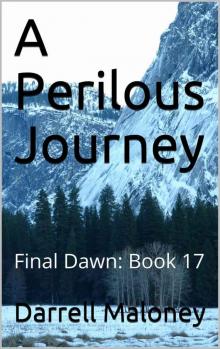 A Perilous Journey
A Perilous Journey The Yellowstone Event: Book 6: The Aftermath
The Yellowstone Event: Book 6: The Aftermath Eden Bound
Eden Bound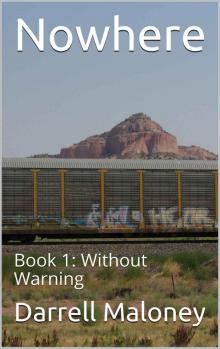 Without Warning
Without Warning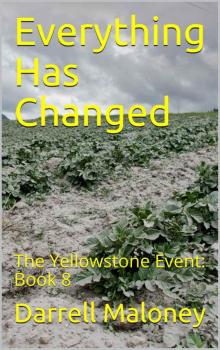 Everything Has Changed
Everything Has Changed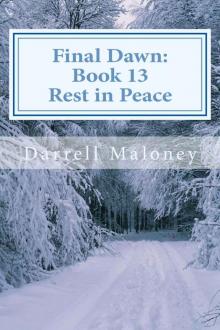 Rest in Peace
Rest in Peace This Changes Everything
This Changes Everything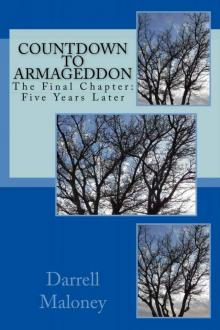 The Final Chapter
The Final Chapter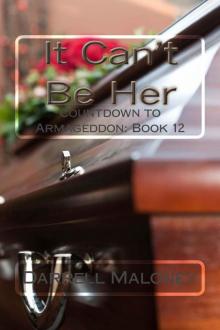 It Can't Be Her
It Can't Be Her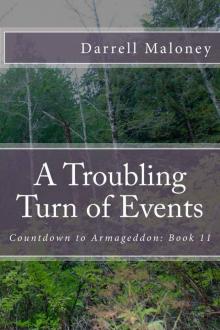 A Troubling Turn of Events
A Troubling Turn of Events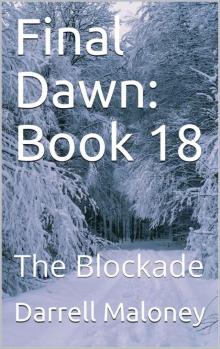 The Blockade
The Blockade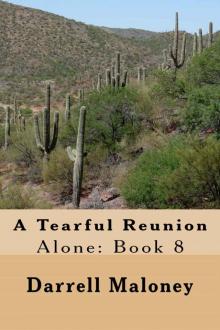 A Tearful Reunion
A Tearful Reunion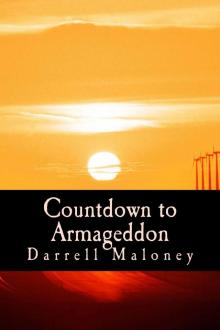 Countdown to Armageddon
Countdown to Armageddon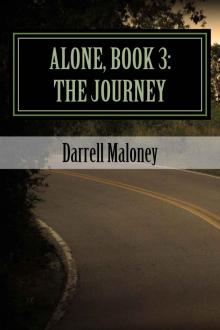 Alone, Book 3: The Journey
Alone, Book 3: The Journey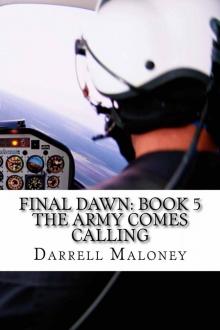 The Army Comes Calling
The Army Comes Calling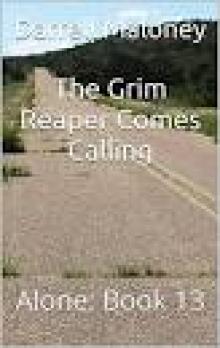 The Grim Reaper Comes Calling
The Grim Reaper Comes Calling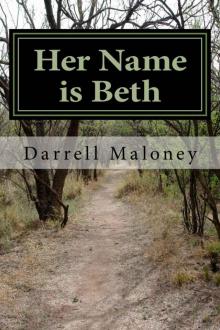 Her Name is Beth: Alone: Book 5
Her Name is Beth: Alone: Book 5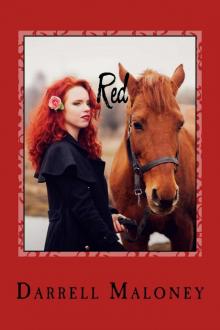 Red: The Adventure Begins
Red: The Adventure Begins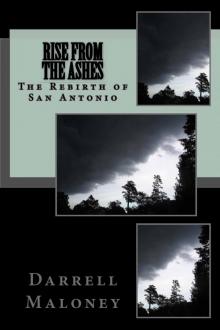 Rise From The Ashes: The Rebirth of San Antonio (Countdown to Armageddon Book 3)
Rise From The Ashes: The Rebirth of San Antonio (Countdown to Armageddon Book 3)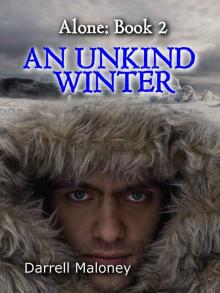 An Unkind Winter (Alone Book 2)
An Unkind Winter (Alone Book 2)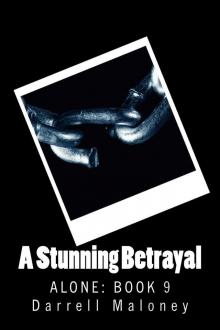 A Stunning Betrayal: Alone: Book 9
A Stunning Betrayal: Alone: Book 9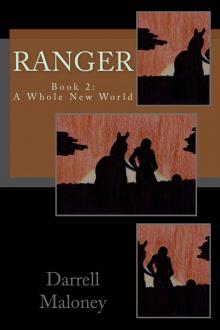 A Whole New World: Ranger: Book 2
A Whole New World: Ranger: Book 2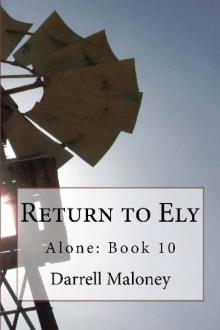 Return To Ely
Return To Ely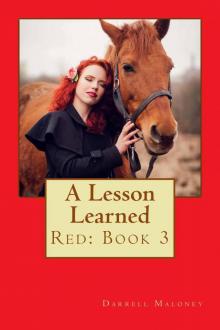 A Lesson Learned: Red: Book 3
A Lesson Learned: Red: Book 3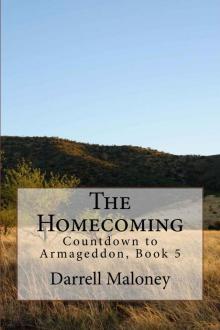 The Homecoming: Countdown to Armageddon: Book 5
The Homecoming: Countdown to Armageddon: Book 5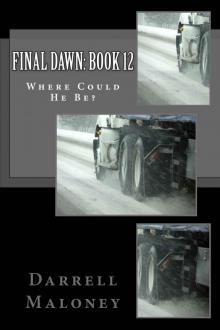 Final Dawn: Book 12: Where Could He Be?
Final Dawn: Book 12: Where Could He Be?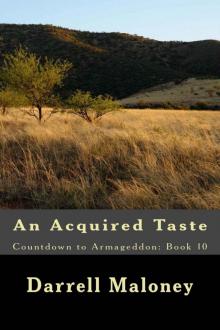 An Acquired Taste
An Acquired Taste On Desert Sands: Alone: Book 6
On Desert Sands: Alone: Book 6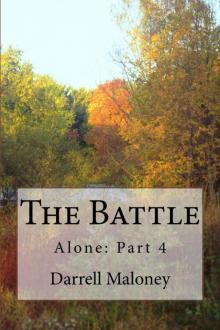 The Battle: Alone: Book 4
The Battle: Alone: Book 4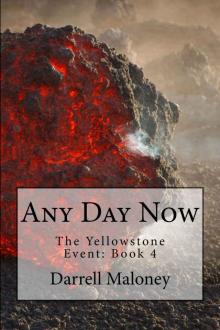 Any Day Now
Any Day Now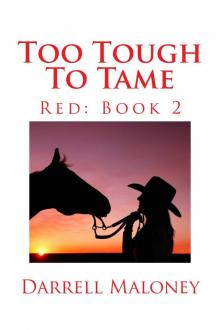 Too Tough To Tame: Red: Book 2
Too Tough To Tame: Red: Book 2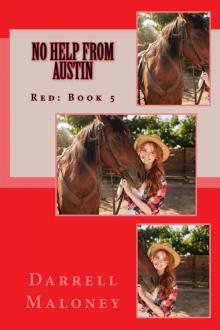 No Help From Austin: Red: Book 5
No Help From Austin: Red: Book 5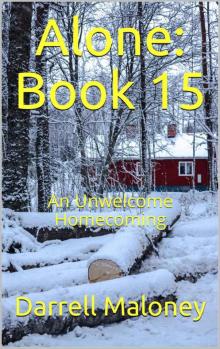 An Unwelcome Homecoming
An Unwelcome Homecoming A New Start: Final Dawn: Book 9 (Volume 9)
A New Start: Final Dawn: Book 9 (Volume 9)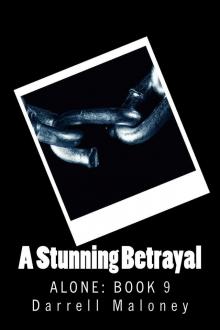 A Stunning Betrayal
A Stunning Betrayal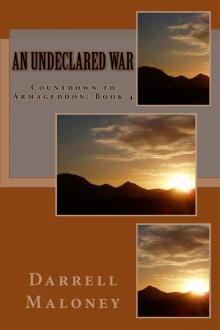 An Undeclared War (Countdown to Armageddon Book 4)
An Undeclared War (Countdown to Armageddon Book 4)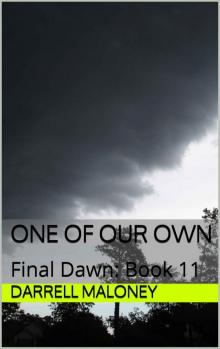 One of Our Own: Final Dawn: Book 11
One of Our Own: Final Dawn: Book 11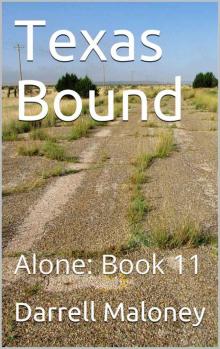 Texas Bound: Alone: Book 11
Texas Bound: Alone: Book 11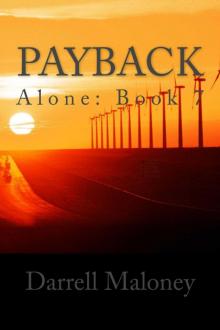 Payback: Alone: Book 7
Payback: Alone: Book 7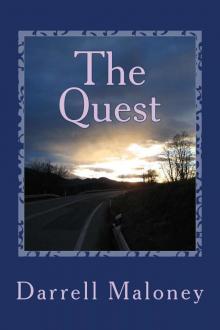 The Quest: Countdown to Armageddon: Book 6
The Quest: Countdown to Armageddon: Book 6 The Siege
The Siege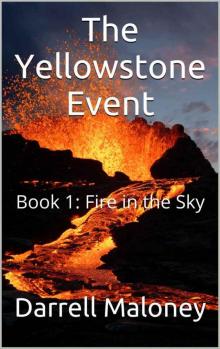 The Yellowstone Event: Book 1: Fire in the Sky
The Yellowstone Event: Book 1: Fire in the Sky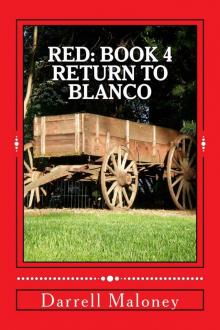 Return to Blanco (Red Book 4)
Return to Blanco (Red Book 4) The Search
The Search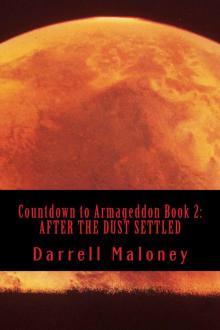 AFTER THE DUST SETTLED (Countdown to Armageddon Book 2)
AFTER THE DUST SETTLED (Countdown to Armageddon Book 2)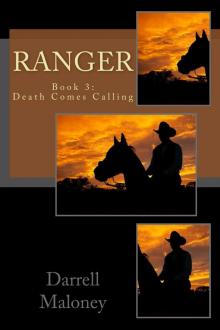 Death Comes Calling (Ranger Book 3)
Death Comes Calling (Ranger Book 3)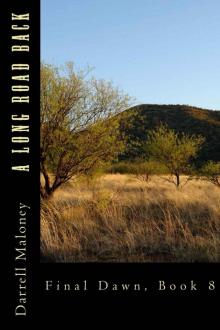 A Long Road Back: Final Dawn: Book 8
A Long Road Back: Final Dawn: Book 8